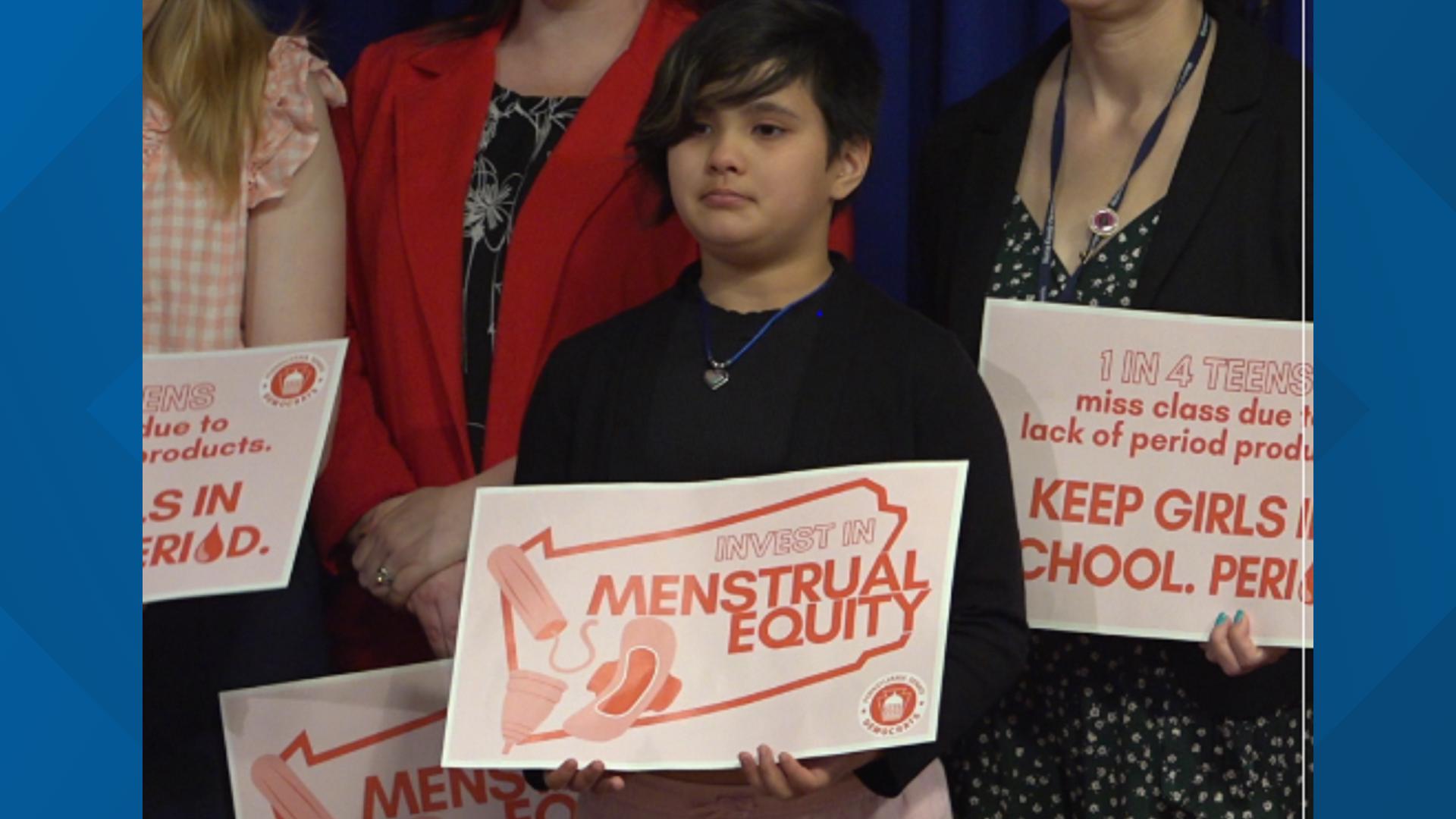HARRISBURG, Pa. — Lawmakers, along with Pennsylvania First Lady Lori Shapiro gathered at the state Capitol today to urge their colleagues to pass two bills that would make menstrual products free in public schools and places for low-income women.
Advocates are asking for $3 million to be allocated to these items in the 2024-25 state budget. The proposal was also made by Governor Josh Shapiro, who organizers say is the first Pennsylvania Governor to do so.
“We need to support all students through this completely normal aspect of growing up and empower them so they don’t have to hide or miss school because they get their period,” said Dr. Valerie Arkoosh, Secretary at the Pennsylvania Department of Human Services.
House Bill 850, sponsored by Representative Darisha Parker, looks to amend the Human Service Code and provides a waiver to purchase diapers or menstrual hygiene products.
Senate Bill 906, also known as the Menstrual Equity Act, looks to provide disposal period products at no cost to public schools, colleges, shelters and more.
“This is a bill that is a waiver for women with SNAP and WIC benefits to receive product and pampers,” said Rep. Parker. “When we’re talking about what we’re doing, we have to aggravate, agitate and advocate for these women.”
According to lawmakers, the $3 million funding isn’t significant, but it would be a start to help women.
A sign at the gathering showed that in last year's $45.6 billion 2023-24 state budget, the funding they’re asking for this year wouldn’t take too much of the cost.
Senator Maria Collett, a representative from Montgomery County who co-sponsored SB906, said the funding shouldn’t be the focus.
“You can see how small of an amount it is budget of our commonwealth of Pennsylvania and by the way, $3 million to invest in the youth of our commonwealth,” said Sen. Collet.
Also in attendance was 16-year-old Lancaster County student Olivia Carabello, who started “Project Feminastic", a feminine hygiene product drive for women in need. Carabello said she began the project because there was a significant need for the products in her community, which remains a problem that is often overlooked.
“No young woman should be struggling with school, or with sports, or going through their regular life just because they don’t have access to something that somebody else has,” said Caraballo.
Lawmakers and advocates expect to have an answer on whether or not the bills and funding were passed by this summer. For a list of places that provide feminine hygiene products for free, click here.

